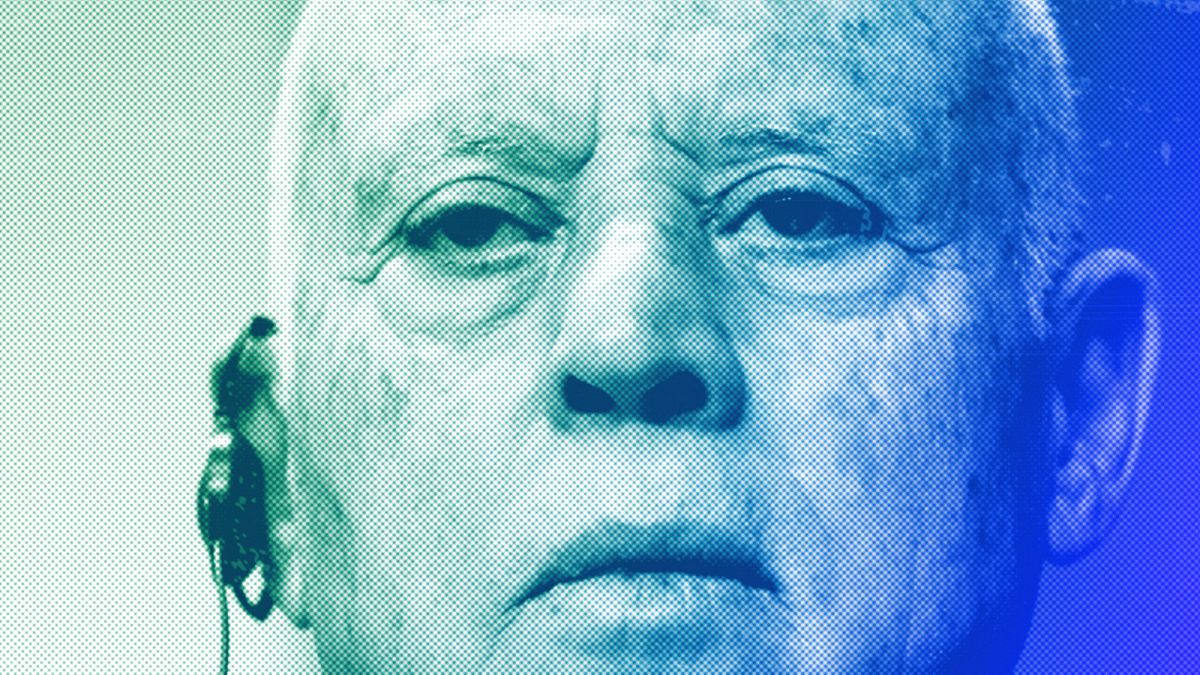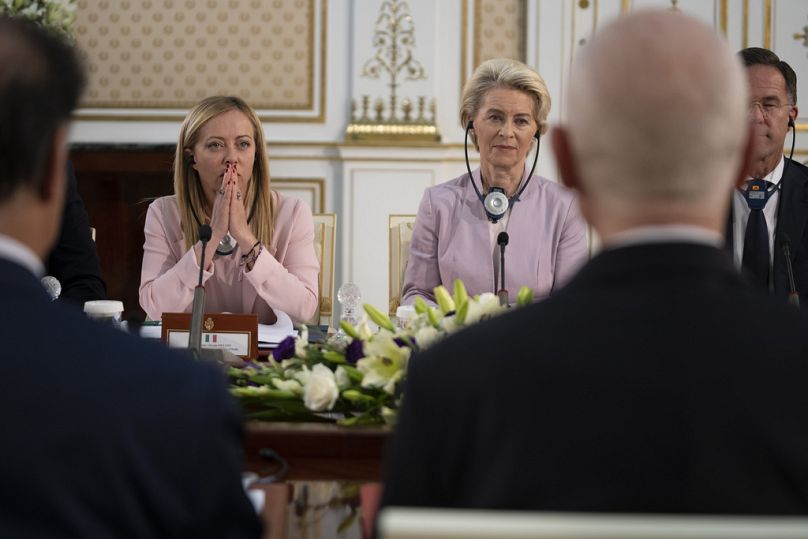It is becoming evident that the cash-for-migration-curbs model would neither be easy nor a long-term solution, Ghazi Ben Ahmed writes.
For years, the European Union has tried and failed to stem the flow of migrants coming to its shores.
Irregular arrivals of migrants in Italy via the Mediterranean from North Africa amounted to almost 114,300 between January and August this year, almost twice as many as in the same period in 2022.
To check the flow of migrants and refugees, this July, the EU reached a “strategic partnership” deal with Tunisia for over €100 million.
European Commission President Ursula von der Leyen said at the time of the signature that the deal could serve as a model for agreements with other countries.
However, within three months of reaching the historic partnership, Tunisian President Kais Saied rejected the financial support saying that “the amount is small and goes against a deal signed three months ago.”
So, while the European Commission president continues to explore working out EU deals with other North African countries like the one that the EU did with Tunisia, it is becoming evident that the cash-for-migration-curbs model would neither be easy nor a long-term solution.
What the policymakers in Brussels are failing to recognise and acknowledge is the strong link between Tunisia’s economic decline and the increase in migration.
Tunisia's economic collapse can be averted by other means
To help the country’s ailing economy, the EU needs to look at innovative economic solutions instead of signing deals that prop up Saied's illiberal regime.
This can be done by means of investing in Tunisia's private sector and strengthening the local economy. Instead, the EU has continued to trust Saied with resources that only serve to enrich a few to the detriment of millions across Tunisia.
The strategic and global partnership hastily negotiated in July has led to the hampering of financial aid and political misunderstandings.
While Saied seems intent on reneging on his agreement with the EU, such political manoeuvres do not change the context of Tunisia’s continued economic decline.
The Tunisian government and its administrative machinery have struggled to implement economic reforms and it continues to rely on a skyrocketing tax burden and domestic financing, thereby depleting market liquidity, stifling investment, and hindering project financing.
To avert a total economic collapse and brain drain in Tunisia, it is crucial to strengthen the local economy and support local companies to actively pursue international diversification in the near future.
Facilitated mobility and access to development funds are crucial
There is a pressing need to broaden the range of financing and support mechanisms for innovative entrepreneurship as on one hand, this sector contributes to local prosperity through the development of technology and intellectual property.
On the other hand, it attracts both local and international talent, effectively mitigating the brain drain phenomenon that has reached alarming levels in Tunisia.
There also needs to be a call for the European Commission to reallocate the €60m returned by Tunisia to DG NEAR to a technological co-development fund.
This fund could serve as a lever for financing and developing innovative and technology-oriented Tunisian companies. The idea is not without its merits and holds promise but it needs to be validated and backed by strong political will.
Tunisia’s economic woes are also exacerbated by challenges brought on by a lack of mobility among the country’s service providers. Access to EU countries is often plagued by outdated bureaucratic procedures.
The situation makes it difficult for businesses to conduct themselves further abroad and hampers the ability for accessible trading. Creating a special visa for entrepreneurs to facilitate Tunisians' mobility within the EU would help address this challenge.
A similar visa waiver, for instance, exists for Mexican entrepreneurs wishing to travel to the United States in the framework of NAFTA.
Charting a new course can help safeguard Tunisian freedoms
In addition, the cash economy in Tunisia wields substantial influence in the country's major sectors and, through its association with those in power, obstructs any transformative efforts that challenge the existing status quo that favours it.
Finally, the shadow economy takes advantage of state-enforced import restrictions to hoard foreign currency, perpetuating a network of corruption that encompasses the population, businesses, and local administrations.
Therefore, EU policies toward Tunisia must chart a new course, closely collaborating with the private sector to craft innovative strategies for democracy and economic development.
Such a collaborative effort can help safeguard freedoms in Tunisia and ensure their long-term sustainability.
Helping Tunisian cross-border innovative firms will not exacerbate competition for their European kin but will add efficiency and competitiveness to the continent's industry as a whole and create synergies and new opportunities for both.
Ghazi Ben Ahmed is Founder of the Mediterranean Development Initiative Brussels (MDI Brussels).
At Euronews, we believe all views matter. Contact us at view@euronews.com to send pitches or submissions and be part of the conversation.


